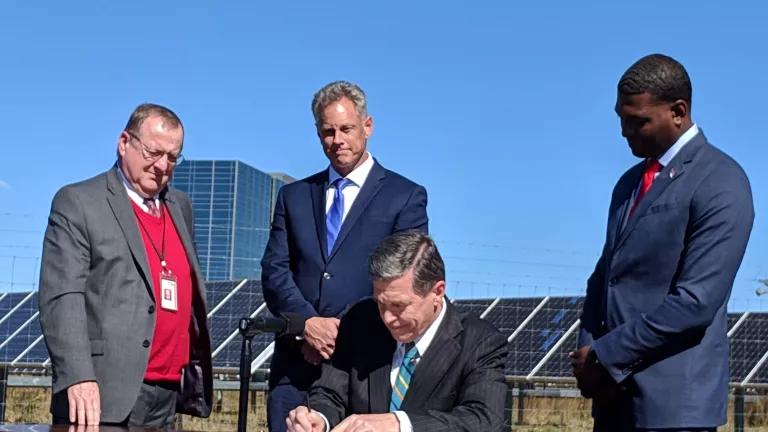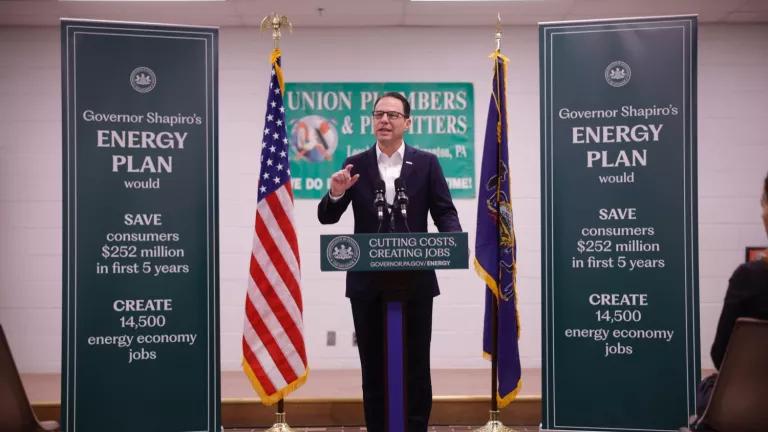North Carolina Charts Bold Course on Climate Change, Clean Energy and Resilience

Recently, I joined participants at a Southeast Energy Innovation Summit exploring the question of what was holding Southeast states back from being at the forefront of energy innovation. The group included entrepreneurs, educators, advocates and regulators. One of the more prevalent answers was the lack of policy and regulatory leadership throughout the region. Simply put, participants mentioned that without clear policy guidance on where the state (or region) was heading and by when it wanted to get there, innovation would continue at the same slow pace it had.
Back in 2007, North Carolina demonstrated leadership and vision in the region by establishing a renewable portfolio standard requiring utilities provide a percentage of their electricity from renewables by a particular time. A decade later, North Carolina is the #2 state in the nation for installed solar capacity, behind only California. A recent survey by Environmental Entrepreneurs revealed that North Carolina is in the top ten states for clean energy jobs. That policy established the framework that helped unleash innovation and create needed jobs.
This week North Carolina Governor Roy Cooper showed exactly the type of leadership the Southeast region needs. He signed a visionary executive order aimed to curb climate change, reduce pollution, expand clean energy, protect citizens from climate impacts and create economic growth.
As the state struggles to recover from the second catastrophic storm in 23 months (Hurricane Matthew and Hurricane Florence), it has become clear for all here that our climate is indeed changing. Governor Cooper’s Executive Order 80, which establishes the state’s “Commitment to Address Climate Change and Move to a Clean Energy Economy,” proves that NC is ready to lead again.
The order requires that by 2025 North Carolina will:
- Reduce statewide greenhouse gas emissions 40% from 2005 levels;
- Reduce energy consumption by square foot from state-owned buildings by at least 40% from 2002-2003 levels; and
- Increase the number of registered zero emission vehicles to at least 80,000.
Additionally, the state will develop a “Climate Risk Assessment and Resiliency Plan” which would examine our vulnerabilities to a changing climate and recommend measures to address them.
The executive order sets the stage for the next wave of energy innovation and ensures that, as the world transitions towards clean energy, thousands of the new jobs created will happen right here.
The next time the energy innovation group meets, the discussion will have moved from what’s holding us back to how far can we go, by when, and how. And that’s where innovation can occur.




